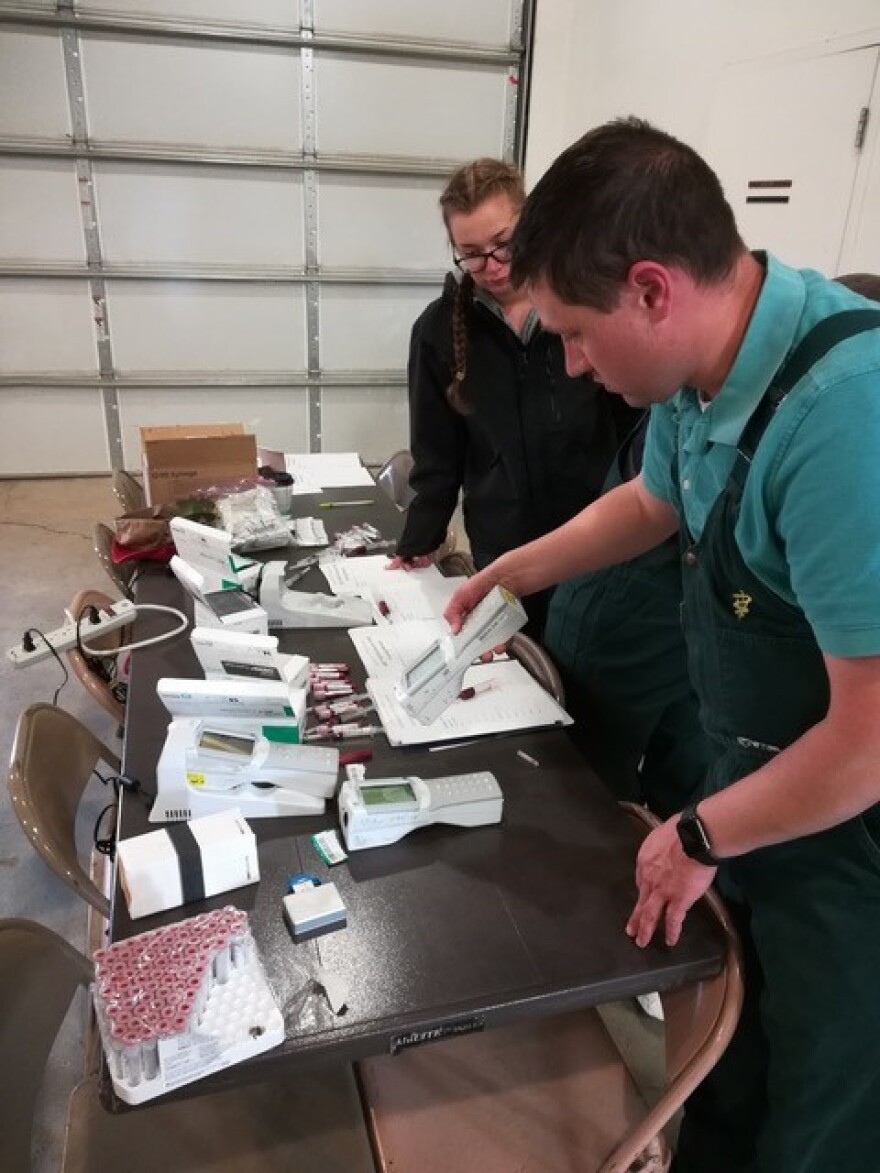Cattle ranching is a costly endeavor, and one little fly can have a huge impact on that cost. Horn flies only bite cattle and some animals are more susceptible to them than others. Knowing why could reduce the costs associated with these pests.
University of Wyoming graduate student Craig Calkins and his fellow researchers are comparing hide thickness, blood chemistry, and herd attitude with the number of flies on an individual cow.
"We hypothesize that anything that would make it easier for the fly to consume a blood meal, so, thinner hide might lead to that, because at some point, if the hide thickness is too thick, they might not be able to get a blood meal," said Calkins. "Also, blood that takes longer to clot would be a lot easier to get a blood meal than blood that clots faster."
Higher altitudes tend to have cooler temperatures, which can lower the numbers of flies in the area. Plus, cattle that have more flies cost ranchers more money than those with fewer flies.

"If they're swatting their tail or throwing their head up, they're not eating. So they're not making meat, their milk production can go down. You also, at some point, should probably treat with some chemicals to kill the flies so that costs money. So lost production, the cost of a parasiticide, those are all costs," said Calkins.
According to Calkins, if the ranchers know which cattle have these traits that make them more vulnerable to horn flies, those individuals can be removed from the breeding population to prevent the traits from being passed on.
Have a question about this story? Contact the reporter, Ivy Engel, at iengel@uwyo.edu.









